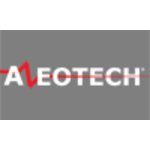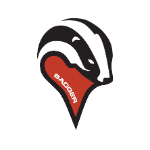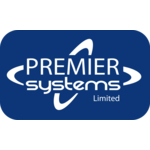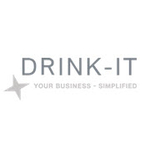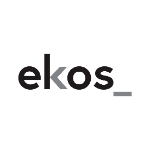List of Best Brewery Software
Showing 6 of 6 productsDAQFactory is a solution for simplifying and automating your data acquisition needs. With user-friendly features and a customizable interface, DAQFactory streamlines the process of collecting, analyzing, and visualizing data. From industrial applicat...Read DAQFactory Reviews
Badger Maps is a is a sales productivity tool designed to help businesses boost their field sales. With its intuitive interface features, Badger Maps streamlines the entire sales process, from planning routes to tracking leads. Say goodbye to wasted...Read Badger Maps Reviews
BrewPlanner is a planning tool for breweries of all sizes. With a user-friendly interface and powerful features, BrewPlanner streamlines production, inventory, and scheduling processes to help you stay on top of your game. Say goodbye to the stress o...Read BrewPlanner Reviews
BrewMan is a solution for managing and optimizing your brewing business. This innovative software is packed with features designed specifically for breweries of all sizes, helping you streamline operations, track inventory, and maximize profits. Say...Read BrewMan Reviews
Drink-IT CRM, is a solution for streamlining your beverage business. Designed specifically for companies in the beverage industry, this powerful tool helps you manage your sales, inventory, and customer data with ease. With user-friendly features and...Read Drink-IT CRM Reviews
Ekos, is a solution for simplifying and streamlining your business operations. Designed to enhance efficiency and boost productivity, Ekos offers a range of innovative tools and features to help you manage your day-to-day tasks seamlessly. With Ekos,...Read Ekos Reviews
- What Is Brewery Software?
- Top Reasons Why Businesses Need Brewery Software?
- What Are the Top Key Features of Brewery Software?
- What Are the Top Benefits of Brewery Software?
- What Are the Steps to Choose the Right Brewery Software?
- What Are the Types of Brewery Software for Different Industries?
- What Are the Technology Trends for Best Brewery Software?
- What Are the Deployment Options for Brewery Software?
What Is Brewery Software?
Brewery software refers to a specialized type of software that is specifically developed for the purpose of catering to the needs and requirements of the brewing sector. The software in question is designed to optimize the many stages of beer production, including inventory management, order processing, and brewing operations.
The beer brewing software facilitates the enhancement of operational efficiency and long-term cost savings for businesses. The best brewery management software facilitates the effective management and monitoring of ingredients, recipes, and supply networks within the brewing industry. Additionally, this program has the capability to monitor and assess the level of production quality, minimize wastage, and facilitate organizational efficiency among brewery personnel.
Furthermore, the utilization of brewery software facilitates the effective management of client data, meticulous monitoring of orders and invoicing, implementation of access restrictions to specific business areas, and seamless integration with accounting and payment systems. Brewery software possesses the capability to generate marketing material, facilitate industry research, and execute sales campaigns.
CRM solutions can be employed to effectively administer social media, facilitate the marketing of novel products, and ensure customers are informed about recent releases. In general, brewery management software facilitates the optimization of the complete brewing process, resulting in enhanced efficiency in terms of both resources and time.
Top Reasons Why Businesses Need Brewery Software?
1. Automated reconciliation of sales and customer accounts: Brewery software possesses the capability to automate the process of reconciling customer accounts and offer comprehensive analysis of sales outcomes.
2. Advanced inventory tracking: Beer brewing software has the capability to offer sophisticated monitoring and documentation of both raw materials and final products.
3. Precise forecasting of future demand and production: Brewery management software facilitates the precise estimation of demand and production for brewers, enabling proactive planning and optimization of available resources.
4. Production and scheduling optimization: Brewery software facilitates the optimization of production schedules and the minimization of downtime.
5. Increased operational efficiency: The utilization of the best brewery software facilitates the optimization of operational processes and enhances overall efficiency in the daily functioning of breweries.
6. Brewer-grade recipe formulation and tracking: Brewers have the ability to employ the best brewery management software in order to develop, monitor, and evaluate recipes.
7. Automated quality assurance protocols: Beer brewing software has the capability to automate quality assurance methods, hence mitigating the risks associated with contamination and size discrepancy.
8. Order management: Brewery software has the capability to streamline the process of placing orders, generate invoices, and provide customers with the ability to track their orders.
9. Automated ingredient handling and storage management: The utilization of brewery software facilitates the monitoring of ingredient stocks and provides a streamlined approach to managing inventory storage sites.
10. Wastewater management: Brewing software has the capability to assess both the quantity and quality of effluent, so aiding in the optimization of waste stream management.
11. Automated label and/or packaging design: The best brewery management software has the capability to produce automatic labels or aid in the creation of personalized labels and packaging.
12. Employee/Operator Productivity Tracking: The utilization of the best brewery software facilitates the monitoring of employee productivity, so empowering managers to discern and address potential areas of enhancement.
13. Point-of-sale integration: Beer brewing software has the capability to seamlessly link with the point-of-sale systems of retailers, thereby facilitating customer ordering and sales tracking without any disruptions.
14. Production scheduling: The utilization of the best brewery management software facilitates the optimization of production schedules for brewers, so enhancing their ability to strategically allocate resources and plan production activities more effectively.
15. Improved cost control: Brewery software has the capability to effectively monitor production costs and contribute to the improvement of cost control measures.
What Are the Top Key Features of Brewery Software?
The top key features of brewery software are:
1. Recipe Management: This functionality enables brewers to monitor inputs, brewing procedures, and recipes, hence facilitating firms in rapidly and effectively expanding their range of products.
2. Automation: Automated procedures facilitate the ability of brewers to oversee and regulate several elements of the manufacturing process, including but not limited to temperature, humidity, and fermentation. This approach has the potential to reduce expenses while maintaining a constant level of quality.
3. Financial Management Tool: This functionality facilitates the monitoring of sales, financial management, invoice generation, and inventory tracking for breweries.
4. Quality Assurance: Quality assurance tools are utilized by brewers to effectively monitor and analyze data, with the aim of proactively identifying and addressing potential concerns, as well as maintaining a consistent level of product quality.
5. Inventory Management: Breweries have the capability to centrally monitor and oversee the inventory of both raw materials and final products, thereby guaranteeing comprehensive batch traceability and mitigating the risk of inventory deficiencies.
6. Traceability: The implementation of a traceability system enables brewers to effectively monitor the origin of materials and the entirety of the production process, thereby ensuring the currency and adherence to safety rules.
7. Artwork and Labelling: The utilization of top brewery software enables the automated generation of labels and artwork, resulting in significant time and cost savings in the production process.
What Are the Top Benefits of Brewery Software?
1. Automation: Brewery software facilitates time and cost savings for brewers through the automation of many operations, including ingredient procurement, inventory management, payment processing, and more functionalities.
2. Quality Control: Brewery management software offers brewers valuable insights into the quality of their products, facilitating the maintenance of consistent standards and enabling prompt responses to customer feedback and the rectification of product issues.
3. Collaboration: Beer brewing software facilitates the collaborative formulation of recipes, enables the modification of brewing procedures, and facilitates the ongoing monitoring of progress at various stages of the brewing process.
4. Traceability: Top brewery software facilitates the implementation of traceability measures, so ensuring the maintenance of quality assurance and compliance with safety standards in the brewing industry.
5. Sustainability: The best brewery management software facilitates brewers in monitoring and managing energy and water consumption, as well as identifying potential avenues for enhancing sustainability through process optimization.
6. Visibility: Beer brewing software offers brewers valuable insights into their operations, encompassing process analytics and key performance metrics.
7. Cost Reduction: Brewery software has the potential to minimize the need for human labor, so enhancing the efficiency of the supply chain and leading to cost reductions and improved profit margins.
What Are the Steps to Choose the Right Brewery Software?
1. Determine your key requirements: Please delineate the essential characteristics required in top brewery software. When contemplating the brewery configuration, it is important to take into account factors such as size (big or small) and level of automation (manual or automated). Additionally, it is crucial to consider the necessary organizational functions, including inventory control, billing and receipt management, sales tracking, and other critical aspects.
2. Evaluate your options: Undertake an investigation on the various software solutions offered by breweries that are currently available in the industry. This analysis aims to compare the different feature sets and determine which solutions will provide the greatest value for your organization.
3. Test the software: After the process of narrowing down the selection of software, it is advisable to conduct a comprehensive evaluation to ascertain its compatibility with the specific requirements of the brewery. If feasible, it is recommended to test the program using real-world scenarios in order to evaluate its compatibility with your specific needs.
4. Obtain references: Engage in discussions with brewers who have previously acquired brewery software. Inquire about the individual's firsthand experience with the software and request an evaluation of the elements that were deemed more or less efficacious.
5. Consider service and support: Conduct an investigation into the nature and extent of assistance that may be anticipated from the beer brewing software provider. Ascertain whether the entity in question offers complimentary training sessions, technical assistance, software upgrades, and supplementary resources that may prove advantageous in the utilization and upkeep of the software.
6. Make a decision: Upon careful consideration of all relevant variables, it is imperative to arrive at a choice. Once a best brewery software solution has been selected, it is advisable to thoroughly examine the license agreement and carefully review the features list in order to maximize the benefits obtained.
What Are the Types of Brewery Software for Different Industries?
Brewery software solutions can be divided into three main categories:
1. Inventory Management Software: Inventory management software is specifically tailored to meet the needs of breweries, wineries, and distilleries by providing a comprehensive system for monitoring and managing orders, purchase orders, and stock levels. This software facilitates the monitoring of materials required for production, their quantities, and the associated costs for each constituent.
2. Production Management Software: Production management software is a tool that aids producers in optimizing and enhancing their production operations. This particular software has the capability to monitor and manage batches, ingredients, and production scheduling. Furthermore, this technology enables producers to monitor the duration of fermentations and assess their influence on the temperature of the beer.
3. Point of Sale Software: Point of sale (POS) software facilitates the efficient management of customer orders and transactions inside breweries. This program enables brewers to monitor financial transactions, facilitate order processing, and monitor customer retention. Additionally, it enables brewers to effectively oversee inventories and maintain consumer data for potential utilization.
Different types of software provide distinct advantages and characteristics, hence necessitating manufacturers to identify the most suitable software that aligns with their specific requirements. The utilization of the best brewery software has the potential to enhance producers' ability to effectively oversee their business operations, maintain systematic order, and ultimately augment their financial performance.
What Are the Technology Trends for Best Brewery Software?
The primary technological developments observed in the realm of the best brewery software encompass automation, cloud computing, mobile technology, analytics, and data visualization. Automation technology is employed to mechanize the manual tasks of data entry, time-tracking, and reporting in order to enhance operational efficiency.
Cloud computing enables breweries to remotely access essential data and execute applications from external systems. Mobile technology is utilized to offer mobile iterations of beer brewing software, hence enabling its accessibility on smartphones and tablets.
Analytics plays a crucial role in the examination of unprocessed data to discern and evaluate issues, patterns, and potential prospects. Data visualization technologies facilitate the expeditious identification of significant trends within the data of breweries.
What Are the Deployment Options for Brewery Software?
Brewery software has the capability to be implemented either on-site or as a software-as-a-service (SaaS) solution hosted in the Cloud.
On-premise deployment refers to the installation of software on servers situated within the brewery's facilities, typically overseen by IT professionals. This alternative provides the opportunity to tailor software components, including analytics, Enterprise Resource Planning (ERP) tools, and automatic process management tools, to address specific requirements in the context of beer brewing, thereby enhancing operational efficiency.
Nevertheless, this particular strategy presents a challenge for breweries who possess limited resources in their efforts to remain current with the most recent advancements in technology and software updates.
Cloud-based software as a service (SaaS) allows breweries to harness the benefits of cloud computing in order to delegate their software requirements to external providers. This method obviates the necessity of internally managing IT resources, while offering software solutions that are user-friendly and straightforward. Cloud-based solutions are characterized by their ability to remain consistently updated with the most recent features and bug patches, hence providing safe and economically efficient services.
